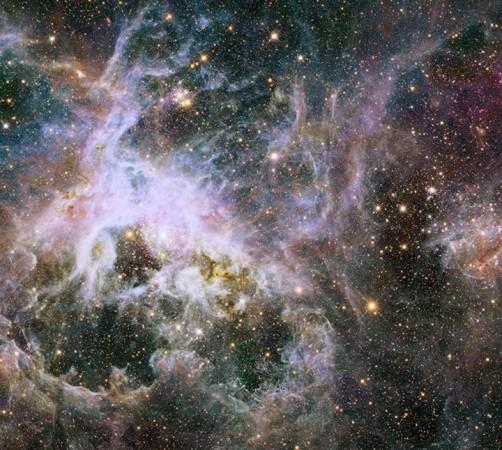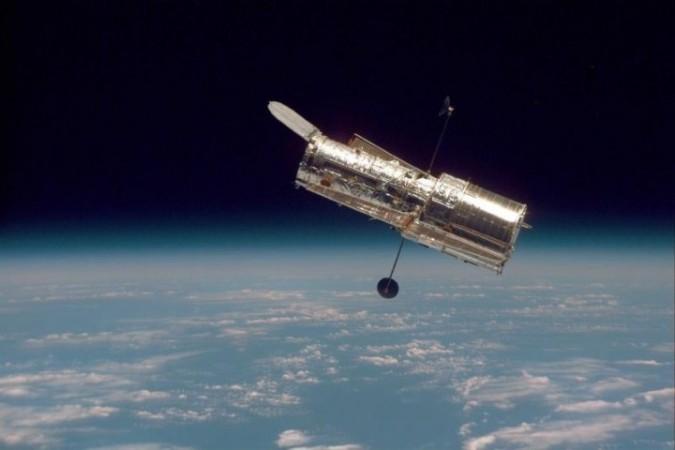
There is a "missing light crisis" taking place in the universe with a huge deficit on what there should be and what there actually is, astronomers have said.
In a statement, experts from the Carnegie Institution for Science said "something is amiss in the universe" with 80% of the light missing.
Lead author of the study Juna Kollmeier said: "It's as if you're in a big, brightly-lit room, but you look around and see only a few 40-watt lightbulbs. Where is all that light coming from? It's missing from our census."
Published in Astrophysical Journal Letters, scientists found that the light from galaxies and quasars is not enough to explain observations of intergalactic hydrogen, with a difference of 400%.
Empty space between galaxies is bridged by tendrils of hydrogen and helium that act as a "light metre".
The scientists discovered that when looking at galaxies billions of light years away in the early universe, the amount of light present appears to add up. However, in more localised parts of the universe, the calculations fail massively.

The ultraviolet photons that the light is made of convert into charged ions, or ionizing photons, which come from quasars and hot young stars.
Scientists discovered the discrepancy during recent observations from Hubble Space Telescope's Cosmic Origins Spectrograph.
Kollmier said: "Either our accounting of the light from galaxies and quasars is very far off, or there's some other major source of ionizing photons that we've never recognised. We are calling this missing light the photon underproduction crisis. But it's the astronomers who are in crisis—somehow or other, the universe is getting along just fine."
Study co-author Ben Oppenheimer said that if the light is really missing it would be a huge surprise as "intergalactic hydrogen is the component of the Universe that we think we understand the best".
Neal Katz, also a co-author of the paper, added: "The most exciting possibility is that the missing photons are coming from some exotic new source, not galaxies or quasars at all."
Proposing another theory, he said the light could be coming from dark matter that holds galaxies together, but has never been seen directly. "You know it's a crisis when you start seriously talking about decaying dark matter!" he added.

















